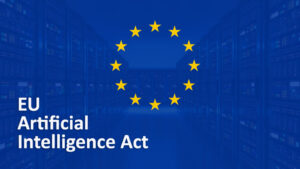Understanding AI Regulation in Portugal’s Digital Landscape
Portugal stands at the forefront of artificial intelligence regulation in 2025, implementing the European Union’s groundbreaking AI Act while developing its own National AI Agenda. This comprehensive regulatory framework positions Portugal as a leader in ethical AI development, balancing innovation with fundamental rights protection. As businesses and organizations navigate this new landscape, understanding what’s legal and what’s prohibited has become crucial for successful AI deployment in Portuguese territory.

The regulatory environment reflects Portugal’s commitment to fostering responsible AI innovation while ensuring citizen protection. With the AI Act’s phased implementation beginning in February 2025, organizations operating in Portugal must adapt to new compliance requirements that affect everything from basic AI literacy to complex system deployments. Companies seeking technology consulting services can benefit from expert guidance in navigating these new regulations.
The EU AI Act: Portugal’s Foundation for AI Governance
The European AI Act, which entered into force on August 1, 2024, represents the world’s first comprehensive legal framework for artificial intelligence regulation. Portugal, as an EU member state, implements this regulation directly, creating a harmonized approach to AI governance across the Union. The Act introduces a risk-based regulatory model that categorizes AI systems into four distinct levels: minimal risk, limited risk, high risk, and unacceptable risk.

This pioneering legislation establishes clear rules for AI developers and deployers, ensuring that artificial intelligence systems operating in Portugal meet stringent safety, transparency, and ethical standards. The regulation’s extraterritorial scope means that any organization providing AI services to Portuguese users must comply, regardless of their location.
Phased Implementation Timeline in Portugal
The AI Act’s implementation follows a carefully structured timeline, with different provisions becoming applicable at various stages:
- February 2, 2025: Chapters I and II become applicable, covering general provisions and prohibited AI practices
- August 2, 2025: Requirements for general-purpose AI models, governance structures, and penalty frameworks take effect
- August 2, 2026: Full regulation becomes applicable, including high-risk AI system requirements
- August 2, 2027: Specific classification rules for high-risk AI systems come into force
Prohibited AI Practices: What’s Illegal in Portugal from February 2025
As of February 2025, Portugal enforces strict prohibitions on AI systems deemed to pose unacceptable risks to fundamental rights and democratic values. These prohibited practices represent the most significant immediate impact of the AI Act, with organizations required to ensure full compliance or face substantial penalties.
Banned AI Applications
The following AI applications are strictly prohibited in Portugal:
Social Scoring Systems: AI systems that evaluate or classify individuals based on their social behavior, socioeconomic status, or personal characteristics for general purposes are completely banned. This prohibition prevents the development of systems that could lead to discriminatory treatment or social exclusion.
Subliminal Manipulation: AI systems designed to deploy subliminal techniques beyond a person’s consciousness to materially distort their behavior in ways that cause or are likely to cause physical or psychological harm are illegal. This includes systems that exploit vulnerabilities of specific groups, particularly children and persons with disabilities.
Biometric Categorization: Systems that categorize individuals based on biometric data to deduce or infer their race, political opinions, trade union membership, religious or philosophical beliefs, sex life, or sexual orientation are prohibited, with limited exceptions for law enforcement purposes.
Real-time Remote Biometric Identification: The use of real-time remote biometric identification systems in publicly accessible spaces for law enforcement purposes is banned, except in strictly limited cases involving serious crimes, terrorist threats, or missing persons searches. 🚫
High-Risk AI Systems: Enhanced Compliance Requirements
Portugal’s implementation of the AI Act identifies specific AI applications as high-risk, subjecting them to stringent regulatory requirements before market deployment. These systems require comprehensive risk assessments, technical documentation, and ongoing monitoring throughout their lifecycle.

Categories of High-Risk AI Systems
High-risk AI systems in Portugal fall into two main categories:
Safety Component Systems: AI systems used as safety components in products covered by EU product safety legislation, including medical devices, automotive systems, aviation equipment, and industrial machinery. These require conformity assessments and CE marking before deployment.
Specific Application Areas: AI systems operating in critical sectors must register in an EU database and comply with enhanced requirements:
- Critical infrastructure management and operation
- Educational and vocational training assessment
- Employment, worker management, and recruitment
- Essential private and public services access
- Law enforcement and judicial systems
- Migration, asylum, and border control management
- Democratic process participation and electoral systems
Compliance Obligations for High-Risk Systems
Organizations deploying high-risk AI systems in Portugal must implement comprehensive compliance measures:
Risk Management Systems: Establish and maintain risk management processes throughout the AI system’s lifecycle, including continuous monitoring and updates based on operational experience.
Data Governance: Implement robust data quality measures ensuring training, validation, and testing datasets are relevant, representative, and free from errors that could lead to discriminatory outcomes.
Technical Documentation: Maintain detailed documentation demonstrating compliance with all requirements, including system architecture, development methodologies, and performance metrics. Organizations developing custom software solutions must ensure their AI components meet these documentation standards.
Human Oversight: Ensure appropriate human supervision capabilities, allowing operators to understand system outputs, intervene when necessary, and override automated decisions.
Transparency and User Information: Provide clear information to users about the AI system’s capabilities, limitations, and intended purpose, ensuring informed consent and appropriate use.
General-Purpose AI Models: New Regulatory Framework
Portugal implements specific requirements for general-purpose AI (GPAI) models, including large language models and multimodal systems, starting August 2025. These provisions recognize the unique challenges posed by foundation models that can be adapted for multiple downstream applications.
Transparency Requirements for GPAI
Providers of general-purpose AI models must comply with comprehensive transparency obligations:
Technical Documentation: Maintain and provide detailed documentation about model architecture, training processes, and capabilities to downstream providers and regulatory authorities.
Copyright Compliance: Implement policies respecting EU copyright law, including mechanisms to honor rights-holder reservations against text and data mining. Providers must publish sufficiently detailed summaries of training data content.
Model Cards and Information Sharing: Create standardized documentation describing model capabilities, limitations, and appropriate use cases, facilitating informed deployment decisions by downstream users.
Systemic Risk Models
GPAI models with high-impact capabilities face additional requirements:
Advanced Testing and Evaluation: Conduct model evaluations including adversarial testing to identify potential risks related to safety, fundamental rights, and societal impact.
Serious Incident Reporting: Establish mechanisms to track and report serious incidents or malfunctions to authorities and the European Commission without undue delay.
Cybersecurity Measures: Implement state-of-the-art cybersecurity protections to prevent model misuse, unauthorized access, or malicious exploitation.
Portugal’s National AI Agenda: Shaping the Future
Beyond EU regulations, Portugal is developing its National AI Agenda, scheduled for presentation by the end of the first quarter of 2025. This strategic initiative aims to position Portugal as a leader in responsible AI development while addressing national priorities and opportunities.
Three Strategic Pillars
Portugal’s AI strategy focuses on three interconnected pillars:
Talent Development: Building comprehensive AI education and training programs across all educational levels, from primary education to professional reskilling initiatives. The strategy emphasizes creating a skilled workforce capable of developing and deploying AI solutions responsibly.

Innovation and Research: Fostering collaboration between academia, research centers, and industry to advance AI capabilities. Key initiatives include developing AMALIA, Portugal’s first large-scale language model, and establishing AI research hubs throughout the country. The digital transformation landscape in Portugal continues to evolve with these strategic investments.
Infrastructure Enhancement: Investing in computational resources, data infrastructure, and technical capabilities necessary for AI development. This includes plans for an AI Factory (Fábrica de Inteligência Artificial) and advanced computing facilities. 🚀
Public Consultation and Stakeholder Engagement
The Portuguese government conducted extensive public consultations in January 2025, with sessions in Lisbon, Évora, and Porto, ensuring diverse stakeholder input in shaping the national strategy. This participatory approach reflects Portugal’s commitment to inclusive AI governance that considers societal needs and concerns.
AI Literacy: A Fundamental Obligation
One of the most immediate requirements affecting all organizations in Portugal is the AI literacy obligation, effective from February 2025. This requirement mandates that AI providers and deployers ensure sufficient AI literacy among their staff and system operators.
Implementing AI Literacy Programs
Organizations must consider several factors when developing AI literacy initiatives:
Technical Competence Levels: Tailor training programs to match employees’ technical backgrounds, ensuring appropriate understanding of AI systems they interact with or manage.
Role-Specific Training: Develop specialized programs for different organizational roles, from executive decision-makers to technical operators and end-users.
Continuous Education: Establish ongoing training mechanisms to keep pace with rapidly evolving AI technologies and regulatory requirements.
Risk Awareness: Ensure all personnel understand potential risks associated with AI systems, including bias, privacy concerns, and safety implications.
Regulatory Authorities and Enforcement in Portugal
Portugal’s AI regulatory framework involves multiple authorities responsible for implementation and enforcement:
Key Regulatory Bodies
Agency for Administrative Modernization (AMA): Leading Portugal’s digital transformation and AI implementation in public administration. AMA representatives participate in the EU AI Board, coordinating national positions on AI governance.
National Data Protection Commission (CNPD): Overseeing AI systems’ compliance with data protection requirements, particularly regarding personal data processing and privacy rights.

ANACOM: The telecommunications regulator plays a role in AI systems affecting communications infrastructure and services.
Enforcement Mechanisms
The regulatory framework establishes significant penalties for non-compliance:
Financial Penalties: Fines up to €35 million or 7% of global annual turnover for violations involving prohibited AI practices, and up to €15 million or 3% for other infractions.
Market Surveillance: Authorities conduct regular assessments of AI systems in the market, with powers to order modifications, withdrawals, or recalls of non-compliant systems.
Complaint Mechanisms: Citizens can file complaints about AI systems with national authorities, ensuring public participation in enforcement efforts.
Sector-Specific Considerations
Different sectors in Portugal face unique challenges and opportunities under the new AI regulatory framework:
Healthcare and Medical AI
Portugal’s healthcare sector shows particular promise for AI innovation while navigating strict regulatory requirements. The SPMS (Serviços Partilhados do Ministério da Saúde) published a comprehensive White Paper addressing AI’s impact on healthcare, emphasizing the need for careful implementation of high-risk medical AI systems.

Healthcare AI applications must balance innovation potential with patient safety requirements, including rigorous testing, clinical validation, and continuous monitoring of AI-assisted diagnostic and treatment systems. Healthcare technology companies operating in Portugal face unique compliance challenges under the new framework.
Financial Services and Banking
Financial institutions implementing AI for credit scoring, fraud detection, or customer service must ensure compliance with both AI regulations and existing financial sector requirements. Special attention to algorithmic transparency and explainability becomes crucial for maintaining consumer trust and regulatory compliance. The fintech sector in Portugal must adapt its AI implementations to meet these stringent requirements.
Public Administration
Portugal’s public sector actively embraces AI while ensuring citizen protection. The ePortugal portal’s Sigma chatbot exemplifies responsible AI deployment in public services, providing assistance while maintaining transparency about its AI nature.
Technological Free Zones: Innovation Sandboxes
Portugal established Technological Free Zones (Zonas Livres Tecnológicas – ZLTs) as regulatory sandboxes for AI experimentation. These designated areas allow controlled testing of innovative AI applications under adapted regulatory frameworks, fostering innovation while maintaining safety standards.
Benefits of ZLTs
Regulatory Flexibility: Temporary exemptions or modifications to certain regulatory requirements enable testing of novel AI applications.
Real-World Testing: Organizations can validate AI systems in authentic environments with actual users under supervised conditions.
Accelerated Innovation: Reduced regulatory barriers facilitate faster development cycles while maintaining essential safety oversight.
International Context and Competitive Positioning
Portugal’s AI regulatory approach positions the country competitively within the global AI landscape. While some jurisdictions adopt sectoral or principle-based approaches, Portugal’s comprehensive framework provides clarity and certainty for businesses while protecting citizen rights.
The country’s strategic location, multilingual capabilities, and strong technical education system create advantages for becoming an AI development hub serving European and global markets. Portugal’s regulatory alignment with EU standards facilitates cross-border AI deployment while maintaining high ethical standards. International companies establishing tech operations in Portugal benefit from this favorable regulatory environment.
Future Outlook: Preparing for Continued Evolution
As AI technology rapidly evolves, Portugal’s regulatory framework must remain adaptive. The government’s commitment to regular review and stakeholder engagement ensures regulations stay relevant without stifling innovation.
Key areas for future development include:
Standardization Efforts: Developing technical standards and certification processes for AI systems, facilitating compliance demonstration and market access. Companies seeking IT compliance services can ensure their AI systems meet all regulatory standards.
International Cooperation: Strengthening partnerships with other EU members and global partners to harmonize AI governance approaches and prevent regulatory fragmentation.
Skills Development: Expanding AI education initiatives to build a competitive workforce capable of leading ethical AI development.
Research Investment: Increasing funding for AI research focusing on safety, explainability, and beneficial applications addressing societal challenges.
Practical Compliance Steps for Organizations
Organizations operating in Portugal should take immediate action to ensure AI regulation compliance:
Immediate Actions (By February 2025)
- Conduct AI System Inventory: Identify all AI systems currently deployed or under development within your organization
- Assess Prohibited Practices: Ensure no systems fall under banned categories and discontinue any non-compliant applications
- Implement AI Literacy Programs: Develop and launch training initiatives for all personnel interacting with AI systems. Corporate training programs can accelerate your team’s AI literacy development
- Review Data Practices: Ensure AI training data and processing comply with GDPR and AI Act requirements
Medium-Term Planning (By August 2025)
- Prepare for GPAI Requirements: If developing or deploying general-purpose AI models, establish documentation and transparency processes
- Designate AI Governance Roles: Appoint responsible persons for AI compliance and establish internal oversight mechanisms
- Develop Risk Assessment Procedures: Create frameworks for evaluating and managing AI-related risks throughout system lifecycles
- Engage with Regulatory Authorities: Establish communication channels with relevant Portuguese authorities for guidance and updates
Long-Term Strategy (By 2026 and Beyond)
- Build Compliance Culture: Integrate AI ethics and compliance into organizational culture and decision-making processes
- Invest in Technical Capabilities: Develop internal expertise for AI safety testing, bias detection, and system monitoring. AI development services can help organizations build these critical capabilities
- Establish Stakeholder Engagement: Create mechanisms for gathering user feedback and addressing concerns about AI systems
- Plan for Continuous Improvement: Implement processes for regular system updates based on operational experience and regulatory evolution
Portugal’s comprehensive AI regulatory framework creates both challenges and opportunities for organizations deploying artificial intelligence. By understanding legal requirements, implementing robust compliance programs, and embracing responsible innovation principles, businesses can harness AI’s transformative potential while contributing to Portugal’s vision of ethical, human-centered artificial intelligence development. The Portugal Tech Hub stands ready to support organizations navigating this complex regulatory landscape. 🎯
The convergence of EU regulations and national initiatives positions Portugal as an attractive destination for responsible AI innovation, offering clarity, support, and a commitment to balancing technological advancement with fundamental rights protection. As the regulatory landscape continues to evolve, organizations that proactively embrace compliance and ethical AI practices will find themselves well-positioned to succeed in Portugal’s digital future.
